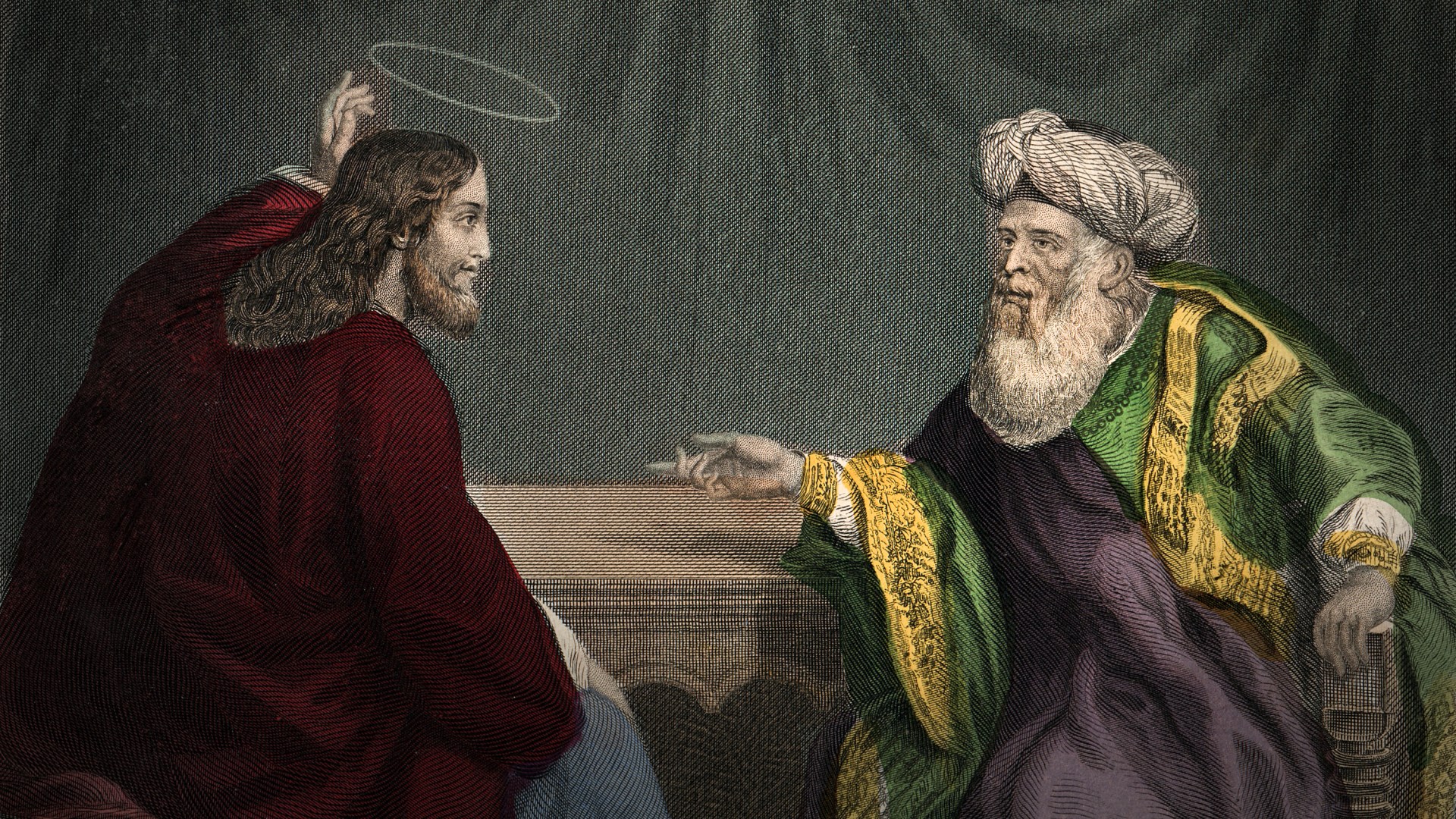Being called a “born-again Christian” can mean many things to many people. For some, it means you are a Bible-thumping fundamentalist or a political conservative. For others, it means you were converted at a Billy Graham crusade. Countless stereotypes have created endless confusion.
In New Life in Christ: What Really Happens When You’re Born Again and Why It Matters, Steven J. Lawson moves beyond today’s (mis)use of the phrase to recapture its biblical meaning and extraordinary significance for the Christian life. With pastoral care, he takes us back to that eerie late-night encounter between Jesus and Nicodemus in John 3. Nicodemus, like many today, was as religious as they come. By today’s standards, he would be the popular pastor or professor everyone knows and respects. That makes Jesus’ words of warning so surprising: “No one can see the kingdom of God unless they are born again” (v. 3). Nicodemus admits he has no idea what Jesus is talking about: “How can someone be born when they are old? Surely they cannot enter into their mother’s womb a second time to be born!” (v. 4).
As the teacher of Israel, Nicodemus should have remembered Moses and the prophets, who used several metaphors to describe this second birth. Moses told the people of Israel they needed God to circumcise their hearts (Deut. 30:6), and Ezekiel promised Israel that one day God himself would act as a surgeon, removing the dead heart of stone and implanting a heart that beats (Ezek. 36:26). Jesus may move the metaphor to the delivery room, but the message is the same: Unless the Spirit of God does something supernatural, we remain spiritually lifeless.
Unfortunately, even the most well-meaning Christians today can get this miracle backwards. We think the new birth is something we must do. But that misses the miracle of it all. It also misses the meaning of the metaphor: Birth is something that happens to us, not something we accomplish. How much more so with matters of the heart? Lawson stresses that the new birth is the work of the Spirit, not the work of any sinner. Jesus says as much when he tells Nicodemus that one must be born of the Spirit (John 3:5). But like the wind, the Spirit is sovereign, blowing wherever it wishes (v. 8).
That might sound unnerving to evangelicals today, in that it pictures the new birth as something other than an offer we can choose to accept or reject. But Jesus is in the habit of turning preconceived assumptions upside down, even if they belong to Israel’s most renowned scholar. The reason Jesus’ words are so shocking is this: Like babies in the womb, we can do nothing to bring about this new birth. It is not something we initiate. Nor is it a cooperative effort between us and God. It is completely his doing, a phenomenon so unnatural it can only be attributed to the Holy Spirit.
As Lawson reminds us, accepting Jesus is not what triggers the new birth, as if God sits around waiting—hoping!—that somebody somewhere will believe so that he can make that person alive. In reality, apart from new life, we will never believe. Our depravity is that pervasive, sin’s grip that enslaving. In another audacious exercise in ticking off Israel’s religious experts, Jesus tells the Pharisees not only that they won’t come to him for life but also that they can’t (John 6:44, 65). Not unless Jesus draws them, that is; until then, they will never believe in the Father who sent him.
The fact that the new birth produces faith and repentance, rather than stemming from them, is truly liberating. We do not preach or evangelize as if we must somehow work the sinner over until he or she is willed into the kingdom. We are more like the prophet Ezekiel: God tells us to speak words of life to a valley of dry bones. They are dead until they begin to rattle and come alive (Ezek. 37).
The point is, let’s remember who the true miracle worker is: God, not us. We tell others about King Jesus, and then we wait and watch the kingdom fill up, as the Spirit who created the cosmos creates new life in hearts otherwise dead in darkness. No, we can’t see the wind. But we know its power because we can see its effects: a kingdom full of new life in Christ.
Matthew Barrett is associate professor of Christian theology at Midwestern Baptist Theological Seminary, as well as the executive editor of Credo Magazine. He is the author of many books, including None Greater: The Undomesticated Attributes of God (Baker Books).











